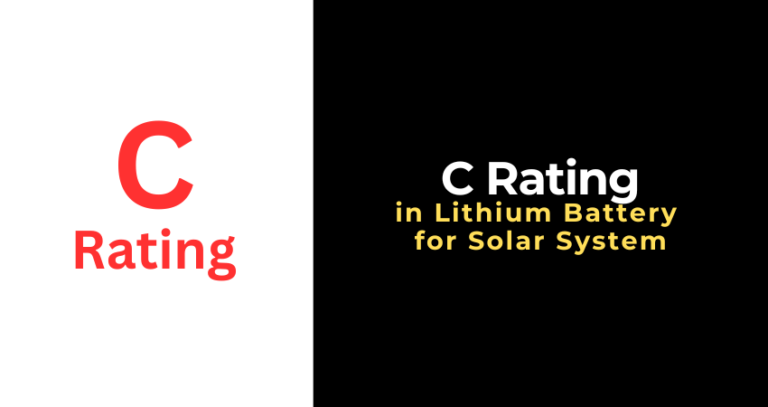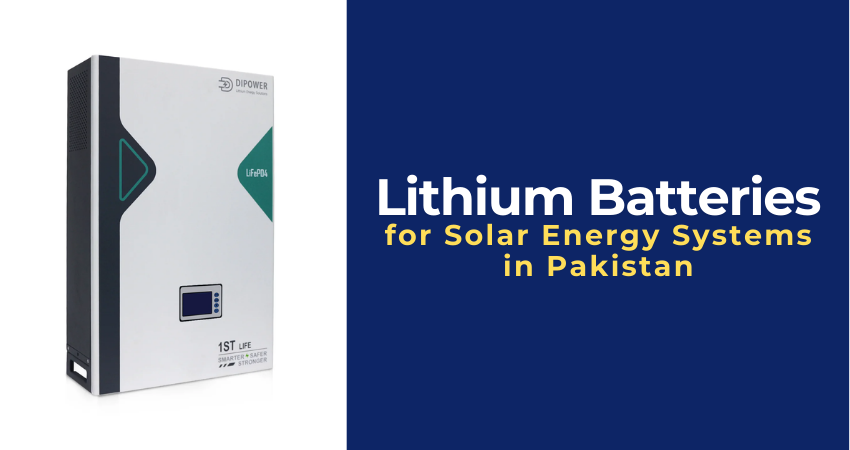Lithium-ion batteries are widely used in various applications, from consumer electronics to solar energy storage. One crucial factor in assessing their performance is the C rating, which determines the battery’s charging and discharging capabilities. Understanding this parameter is essential for optimizing battery usage, efficiency, and lifespan.
How to Understand Lithium-Ion Battery C Rate?
The C rate of a lithium-ion battery represents the rate at which it charges and discharges relative to its capacity. It is a measure of how fast the stored energy can be delivered or replenished.
- 1C Rate: The battery will fully discharge in one hour. For example, a 100Ah battery at 1C will discharge at 100A for one hour.
- 0.5C Rate: The battery will discharge in two hours. A 100Ah battery will discharge at 50A over two hours.
- 2C Rate: The battery will discharge in 30 minutes. A 100Ah battery will discharge at 200A over 30 minutes.
A higher C rate indicates a faster charge or discharge rate, while a lower C rate extends the discharge duration, which is beneficial for long-term applications like solar energy storage.
Time Required to Charge and Discharge Different C Rates
Understanding how the C rating affects the charging and discharging time of lithium-ion batteries is essential for selecting the right battery for specific applications.
Charging Time at Different C Rates
| C Rate | Charge Time |
| 0.2C | 5 Hours |
| 0.5C | 2 Hours |
| 1C | 1 Hour |
| 2C | 30 Minutes |
| 5C | 12 Minutes |
For safety and longevity, most lithium-ion batteries are charged at 0.5C to 1C. Higher charging rates can cause overheating, reducing the battery’s lifespan.
Discharging Time at Different C Rates
| C Rate | Discharge Time |
| 0.2C | 5 Hours |
| 0.5C | 2 Hours |
| 1C | 1 Hour |
| 2C | 30 Minutes |
| 5C | 12 Minutes |
A battery discharged at a higher C rate delivers energy quickly but may heat up and degrade faster due to increased internal resistance.
Why is the C Rating Important for Solar Lithium Batteries in Pakistan?
Determines Battery Performance
The C rating directly affects how efficiently a battery can store and deliver power. A lower C rate is preferable for solar storage since solar applications require steady energy release over an extended period.
Influences Battery Lifespan
High discharge rates can shorten battery lifespan by causing excessive heat and stress on internal components. A low C rate ensures longevity, making it ideal for solar energy storage.
Impacts Energy Efficiency
Batteries discharged at high C rates may suffer from voltage drops, reducing overall efficiency. A lower C rating ensures stable output for critical solar applications.
Affects Safety Considerations
Lithium-ion batteries with high C ratings generate more heat, increasing the risk of thermal runaway. For solar storage, lower C rates enhance safety by minimizing overheating risks.
What is The Ideal C Rate for Solar Energy Storage Lithium Battery Applications in Pakistan?
Selecting the appropriate C rate for solar storage systems is essential for ensuring efficiency, longevity, and safety.
Recommended C Rate for Solar Storage
For solar energy storage, the best C rates range between 0.2C and 0.5C in Pakistan. This ensures a steady, controlled discharge that aligns with solar power generation patterns.
| Application | Recommended C Rate |
| Residential Solar Storage | 0.2C – 0.5C |
| Commercial Solar Storage | 0.3C – 0.5C |
| Industrial Solar Backup | 0.5C |
Effects of Using an Incorrect C Rate
- Too High (Above 1C) → Causes overheating, reduces lifespan, and risks damage.
- Too Low (Below 0.2C) → Can result in inefficient power utilization and slow energy delivery.
Balancing C Rate with Battery Chemistry
Different lithium-ion chemistries handle C rates differently:
- Lithium Iron Phosphate (LiFePO4) – Stable at 0.5C discharge and 1C charge.
- Lithium Nickel Manganese Cobalt (NMC) – Can handle up to 2C discharge but degrades faster.
- Lithium Titanate (LTO) – Supports higher C rates (up to 10C) but is costly.
Dipower Lithium Battery C Rating
In Observation of the weather conditions of Pakistan, Dipower lithium batteries are designed for longevity and heat resistant to protect the battery from severe weather. For charging depower battery rating is 1C, and discharging is configured as 0.5C to give a long battery backup. It will save the battery from high temperatures and increase the lifespan of the lithium battery.
Conclusion
Selecting the correct C rating for lithium-ion batteries is essential for solar energy storage applications. A lower C rate ensures efficiency, safety, and longevity, making it the best choice for residential, commercial, and industrial solar energy systems.



